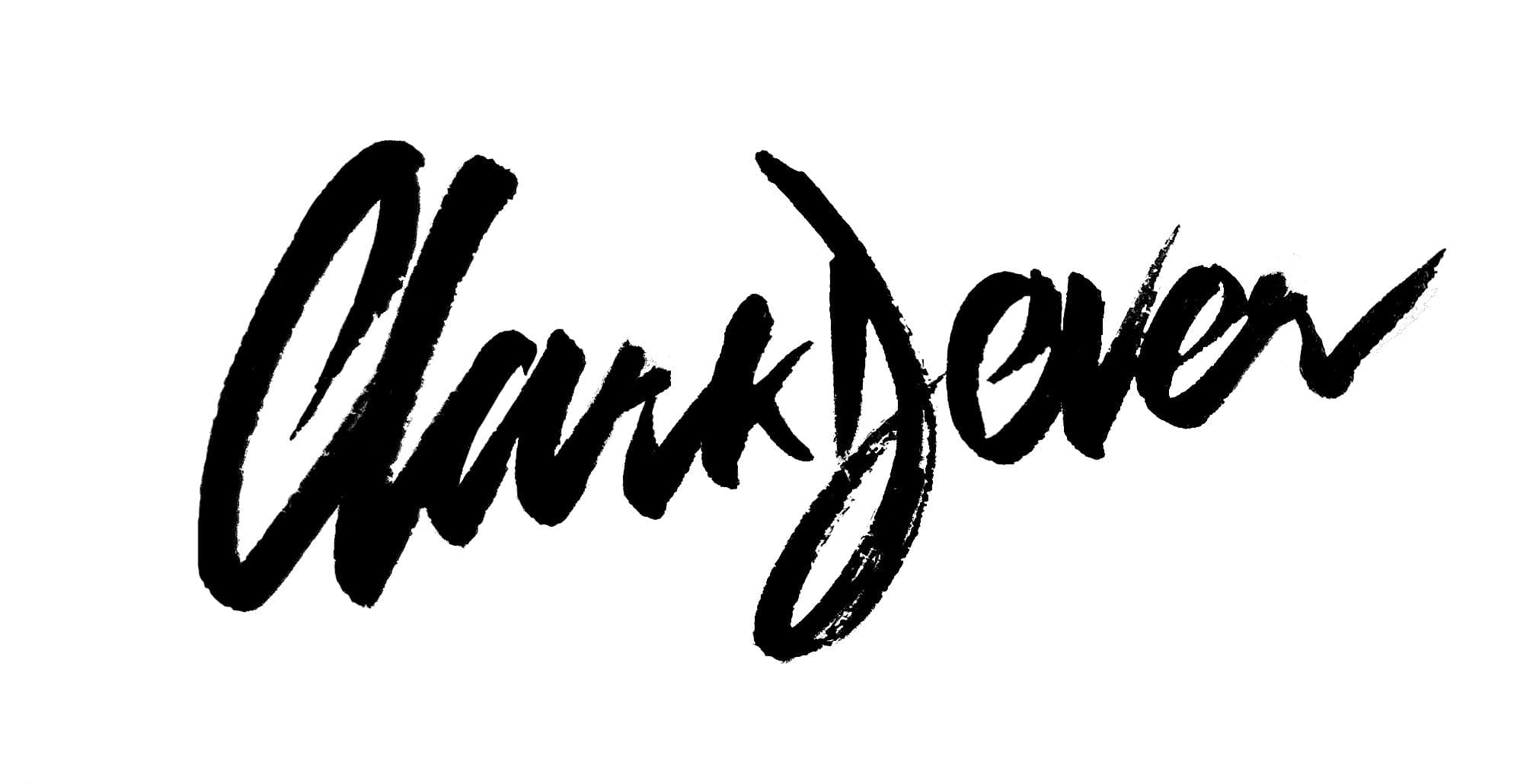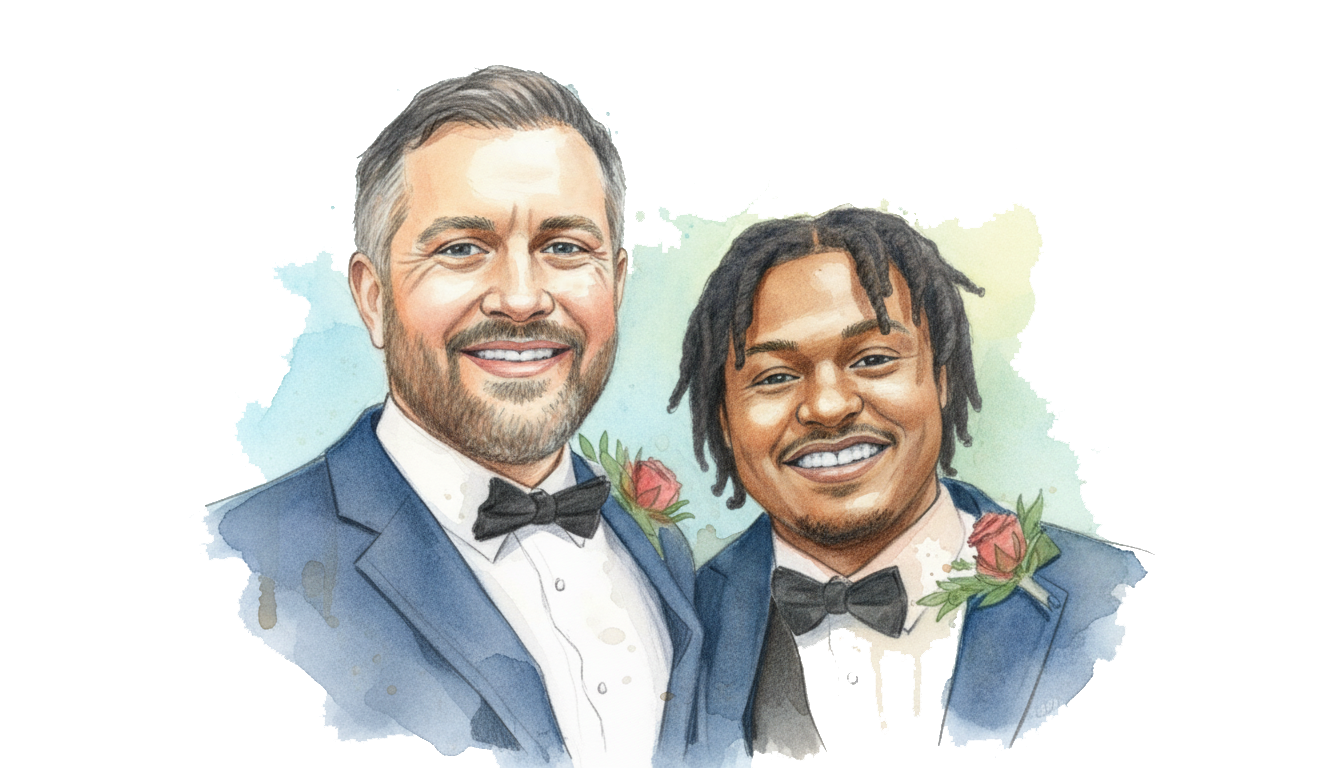"Doug, I'm taking all these drugs and sending you a photo of it, so that if I stroke out, you can tell the EMTs what's in my system."
I was sitting in a Walmart parking lot in a rented Toyota Tacoma. The dashboard clock read 1:18. I had to be at the venue in less than 45 minutes.
The pharmacological arsenal spread across the passenger seat looked like I was prepping for an ultramarathon, not a wedding. Fifteen milligrams of creatine for cognitive function. Two hundred milligrams of ibuprofen for the killer headache. Zyrtec for allergies. A Celsius for the B12 and caffeine. Saline nasal spray for my sinuses.
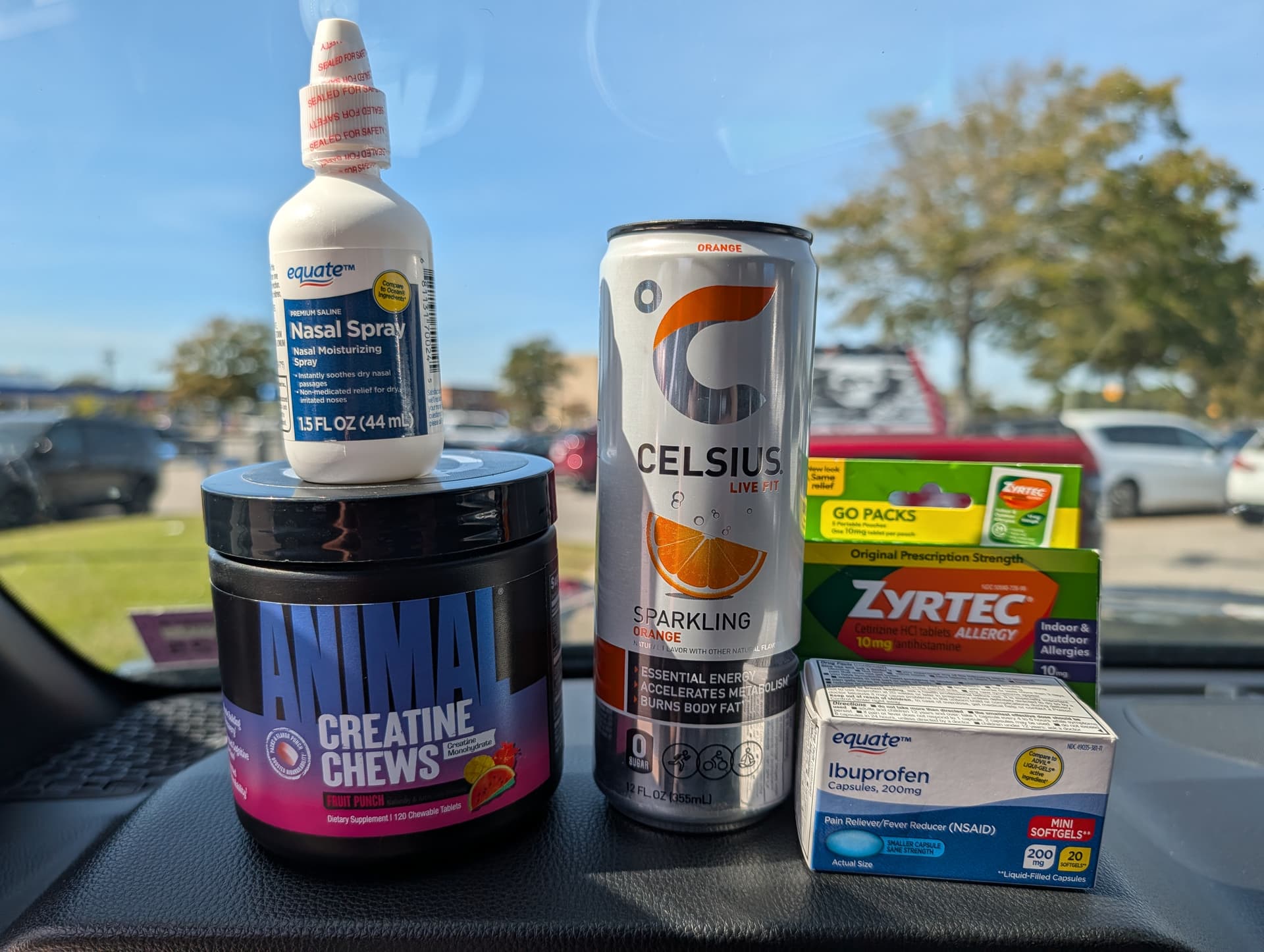
I'd been awake for almost 68 of the past 72 hours.
Internally, I was wondering about the ethics of driving, of being at the wedding, of forcing myself to suffer instead of just going to the hotel and sleeping it off. But Doug always gave generously. Now was a moment where I needed to show up for him.
I set every driver assist feature the Tacoma had and started the 45 minute race to the wedding venue. Oscar-Mike.
The Origin Story Nobody Expects
Ten years earlier, I got a distressed call from my friend Elizabeth who worked for the City of Buffalo. The Mayor had a paid internship program that placed high school students with local businesses. The city would pay the intern's salary. They had a kid with software background and no idea where to put him. Most of the other businesses were main street retail.
"Do you have work for him?"
I was working on my startup full time and we had zero funding.
"Free intern? I'll take two!"
I've always believed in paying interns properly. I won a competitive internship in college and couldn't afford to attend because of housing costs. That experience stuck with me. If you want the best candidates regardless of their background, you pay them. The Mayor's program let us do that despite our negative cash flow.
That's how I met Doug.
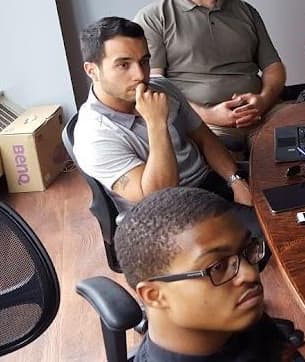
I gave him generalized tasking on our first project. Build a front-end dashboard using Angular, a framework he'd never touched. I wasn't expecting much from a high school kid.
He came back with a working prototype.
Not just code that compiled. A functional design we could integrate. He'd gone and learned Angular, absorbed our business rules, and delivered something we could iterate on.
Give Doug a problem. He'd figure it out.
The Framework: Below-the-Waterline Projects
Let me say what most product leaders won't: interns are always a net negative resource.
Their output, even when they're really good, tends to be pretty low compared to the amount of management and training required. You're not hiring interns to ship features. You're hiring them because you believe in mentorship and providing opportunity.
But there's a framework that makes this sustainable.
Every product leader has a list of things they want to build. When you rack and stack by priority against your available resources, some projects always live below that line that makes them actionable. We call that the waterline.
Below-the-waterline projects become intern work.
These are things that would delight customers or improve quality of life for your team, but aren't priority from a functionality standpoint. They're completely non-blocking. If an intern completely fails, it doesn't matter because it wouldn't have been built otherwise.
But if they succeed, they get a story they can tell in future interviews. They get a sense of pride and purpose. And you get to discover whether you have someone worth hiring full time.
Doug got meaningful work with real ownership that let him explore and grow. No micromanagement. No boring unit tests. Just ambiguous problems and support as he figured it out.
Doug got ownership. I got signal.
The Pattern You Don't See Coming
After that first summer, Doug became part of our team. When I left the startup and joined a defense contractor to build out an R&D division, I chased him back down. He was finishing his Computer Science degree at RIT.
"Want to work on some cool augmented reality and virtual reality projects?"
We hired him again as an intern, then as a junior developer after graduation. He got to work with great game developers and hone his craft. He was well loved by the team and known for his incredible ability to eat large quantities of food.
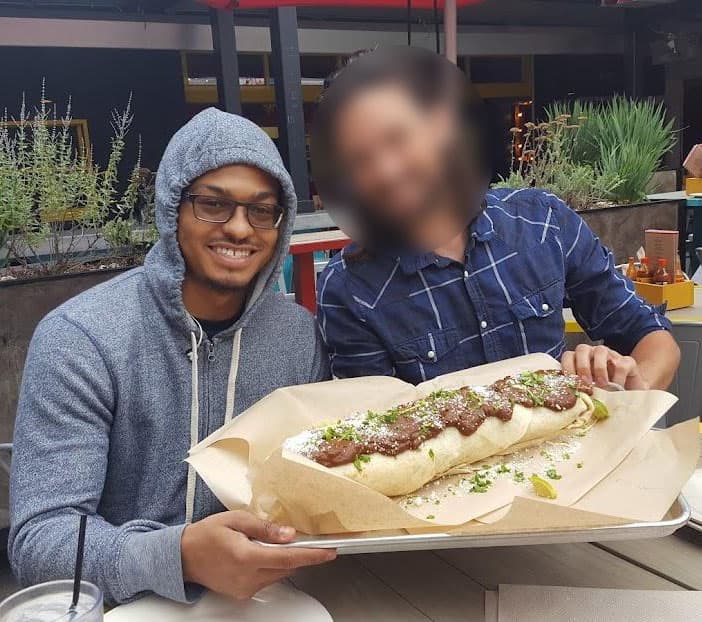
Then he told me he was leaving for a bank.
I could have been bitter. Instead, I helped him negotiate. When they gave him an initial offer, I gave him a counter-offer strategy. He ended up with a 20 or 30 percent increase in total comp.
I believe very strongly in supporting my teammates' development, whether that's inside or outside the company. That's how you hire people back in other roles. You show them you don't just care about the business. You care about them as humans.
A year later, Doug called me. Not a single line of code he'd written at the bank had reached production. After working at a startup and an R&D group where he shipped constantly, his work felt purposeless.
I was joining a VR company building police training simulations in aftermath of George Floyd. We were opening an office in Buffalo. Doug had the game dev experience from our time at the defense contractor.
"Want to come back?"
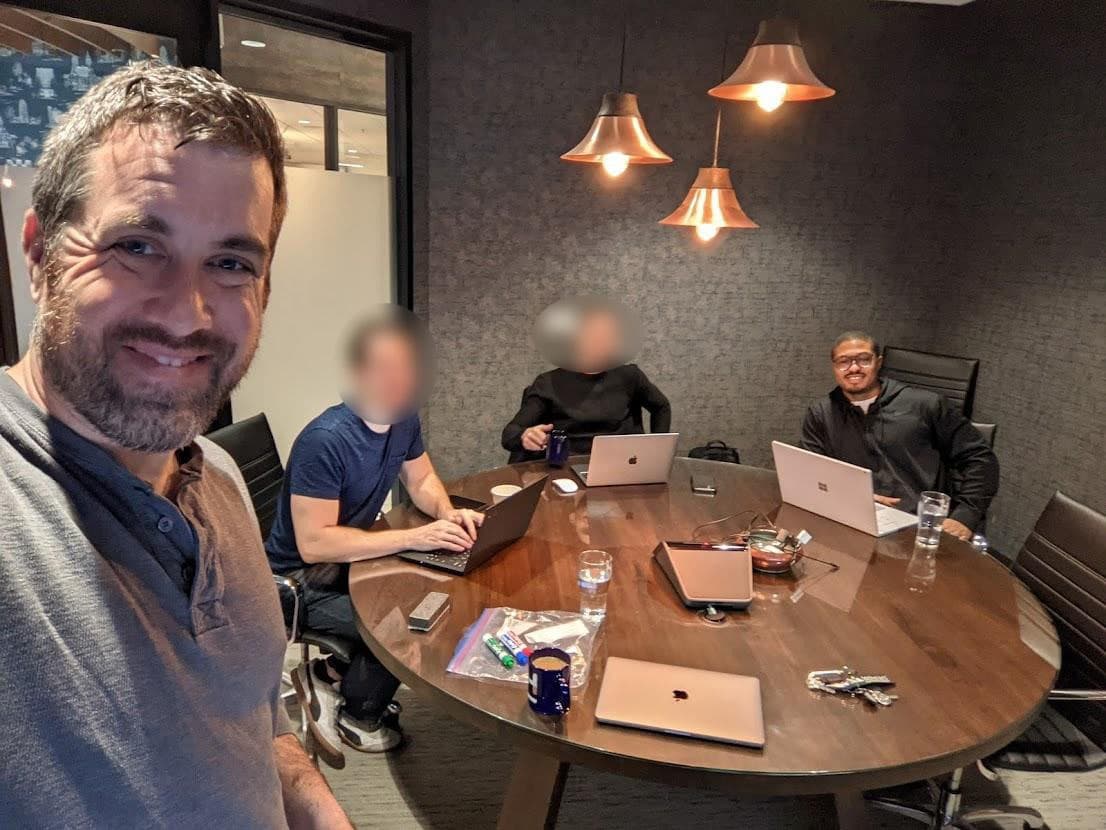
You don't go into battle with an untested rifle. You bring the one you know works.
The Real ROI Calculation
Most product leaders calculate intern ROI wrong. They look at quarterly output versus management overhead and call it a loss.
The real ROI shows up years later.
It pays off when you hire them as a full-time employee. You get a low-cost screen for different candidates. You see who learns fastest. You also get to test your onboarding and offboarding processes.
With each new hire, I have them go down the on-boarding checklist and add anything we missed when they're done. That keeps onboarding evergreen. Maybe you didn't capture much value from a specific intern, but them going through that process makes it faster to bring another higher paid employee up to speed.
That saves you money.
But there's another benefit most leaders don't realize: the intelligence network you build.
Take your interns to lunch. Ask them questions about their experience at your company. About the teammates they worked with. It's unfiltered information about frontline employees and the actual culture of your organization.
You can always tell how kind a person is by how they treat the people with the least amount of privilege in an organization.
Hire Senior First
One of the things I always say: you have to hire senior first.
Before you bring on interns, you need at least one senior person on your team who genuinely loves mentoring. Someone who gets energized by teaching, not drained by it. That person becomes your intern program owner. They set the standards. They do the screening. They create the framework for meaningful work.
Without that senior person, your intern program will fail. A good senior can spot an incredible intern from a mile away. They know what questions to ask. They recognize raw potential versus polished credentials. But a junior person has no idea what good looks like because they haven't done enough hiring. They also don't have the breadth of experience that you need to really support the development of an intern cohort.
So what does a great intern actually look like?
Start with builders. People with a bias for action. Did they bring a notebook to the interview? Do they have a GitHub with personal work that isn't just class assignments?
Those are the people I look to hire. Folks that show up as anomalies from the baseline.
Doug showed all those signals. But what separated him wasn't just technical skill. He wasn't afraid of being wrong. He took ownership when he goofed up.
There was one moment at the defense contractor. Doug had to change his time card in a federally audited system. In the reason field, he wrote: "I dun goofed."
I learned of his humerous youthful indiscretion when my boss called me screaming. I took the heat, shrugged it off, and brought the teachable moment to my next conversation with Doug. We laughed about it and he was more formal in his language going forward.
In fact, I still laugh about it. My wife and I still say "I dun goofed" around the house when things don't go our way.
That moment taught me something about onboarding. We should have documented expectations before Doug started. Attendance policies. Communication norms. How to interact with controlled systems. Iron it out formally before the interview process completes. It saves everyone the awkward conversations later.
The Rehearsal Dinner Realization
Fast forward to 2025. I'm sitting at Doug's rehearsal dinner, and the groomsmen are reminiscing.
That's when I realized: Doug is at the same life stage I was when we first met.
My wife and I are celebrating our 12th wedding anniversary this year. He supported me through all of the important parts of my journey from then until now. Having children. Starting companies. Moving to a different state.
It was a full circle moment.
I leaned over. "Doug, I'm excited to watch you have these experiences in your own life. To celebrate those wins with you."
The Ceremony
I made it through the wedding without stroking out.
Barely.
I raced in ten minutes late, threw on my suit, and hung out with the boys getting Doug ready for the ceremony. Beautiful ceremony. Outdoor venue. The molecular cocktail was working. The vibes were immaculate. The kind of moments that make you forget you're running on empty.
Standing at the altar as his groomsman, I was thinking about what an incredible honor it was to be part of this ritual. Getting to see Doug and Alyssa so happy and joyful together. This amazing couple with incredible creative and humorous energy they share.
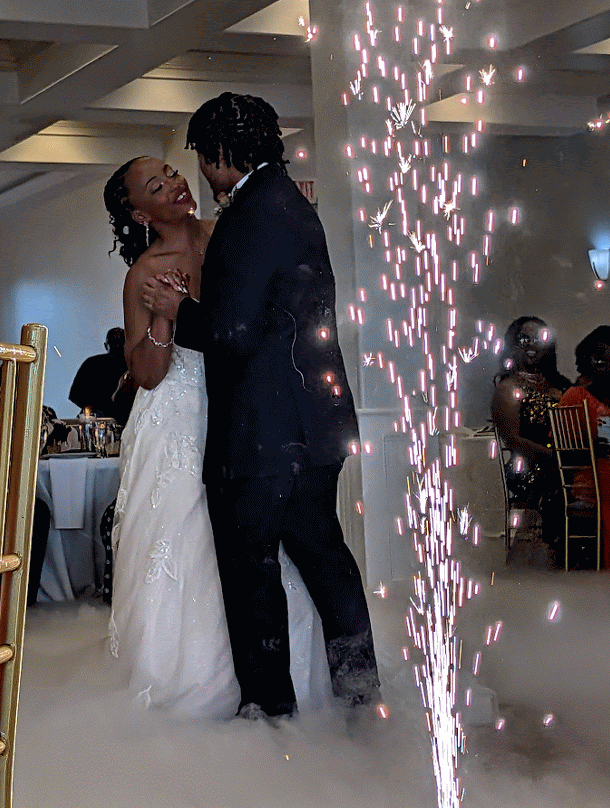
Just about the time the dance floor opened after all the reception rituals, I gave Doug and Alyssa both hugs. Then I made an irish exit.
I slept for 12 hours straight.
The Long Game
Doug and I had periods where we didn't talk for months or years. That's normal. But when it mattered, we stayed connected.
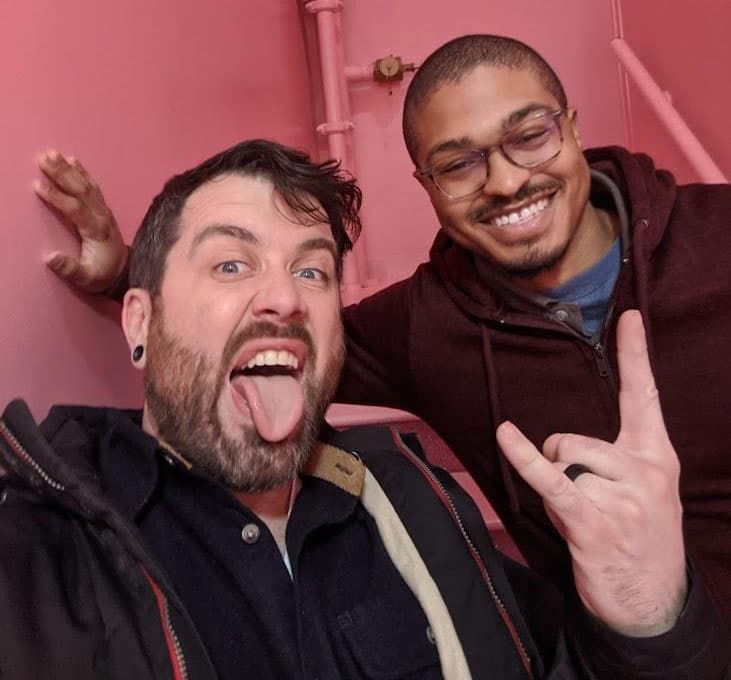
I kept hiring him back because he's a lifelong learner. I could give him ambiguous problems and he would attack them and figure it out. Most folks want hand-holding and permission. Doug relentlessly focused on getting to the solution.
That's rare.
The framework was the same for every intern. Below-the-waterline projects. Real ownership. Zero micromanagement. Doug's response was what made the difference. He showed up. He put in the work. He took ownership when he goofed up.
I've learned a lot from Doug over the years. What stands out most is his generosity. He gives freely of his time, talents, and treasure. It's made me want to be more gracious in my own life. Seeing someone else get after it always motivates me to be better myself.
Doug deserves all the credit for being an exemplary intern, employee, and now lifelong friend.
The real ROI on intern programs isn't quarterly output. It's not even the hire conversion rate.
The real ROI is measured in shared experiences.
What I'd Tell My Younger Self
If you're a product leader building an intern program, here's what matters:
Give them meaningful work that isn't critical path. Projects below the waterline. Nice-to-haves that won't block your roadmap if they fail. Let them own something real.
Hire senior people first. They can spot great interns from a mile away. Junior people don't have the breadth of experience needed to really help interns grow.
Look for builders with bias for action. GitHub activity outside of class. Personal projects. People who take notes. People who don't wait for permission.
Pay them properly. If you want the best candidates regardless of background, pay prevailing wage. The best talent might not have the means to take unpaid work.
Support their development even when they leave. Help them find a job or negotiate offers at other companies. Stay in touch. Show them you care about them as humans, not just resources. That's how you build lifelong relationships.
Take them to lunch and ask questions. Get unfiltered intelligence about your culture and frontline employees. You can always tell how good a person is by how they treat the people with the least privilege.
Document expectations before hiring. Attendance. Communication. Work norms. Iron it out formally before they start. It saves awkward conversations later.
The framework is simple. The execution takes patience.
And sometimes, it takes you to a Walmart parking lot at 1:18 in the afternoon, exhausted and slightly delirious, surrounded by over-the-counter medications, calling someone to tell them you won't let them down on the most important day of their life.
Because ten years ago, you took a chance on a high school kid who wanted to learn.
And he showed up.
What small step will you take to build meaningful relationships with your next intern?
